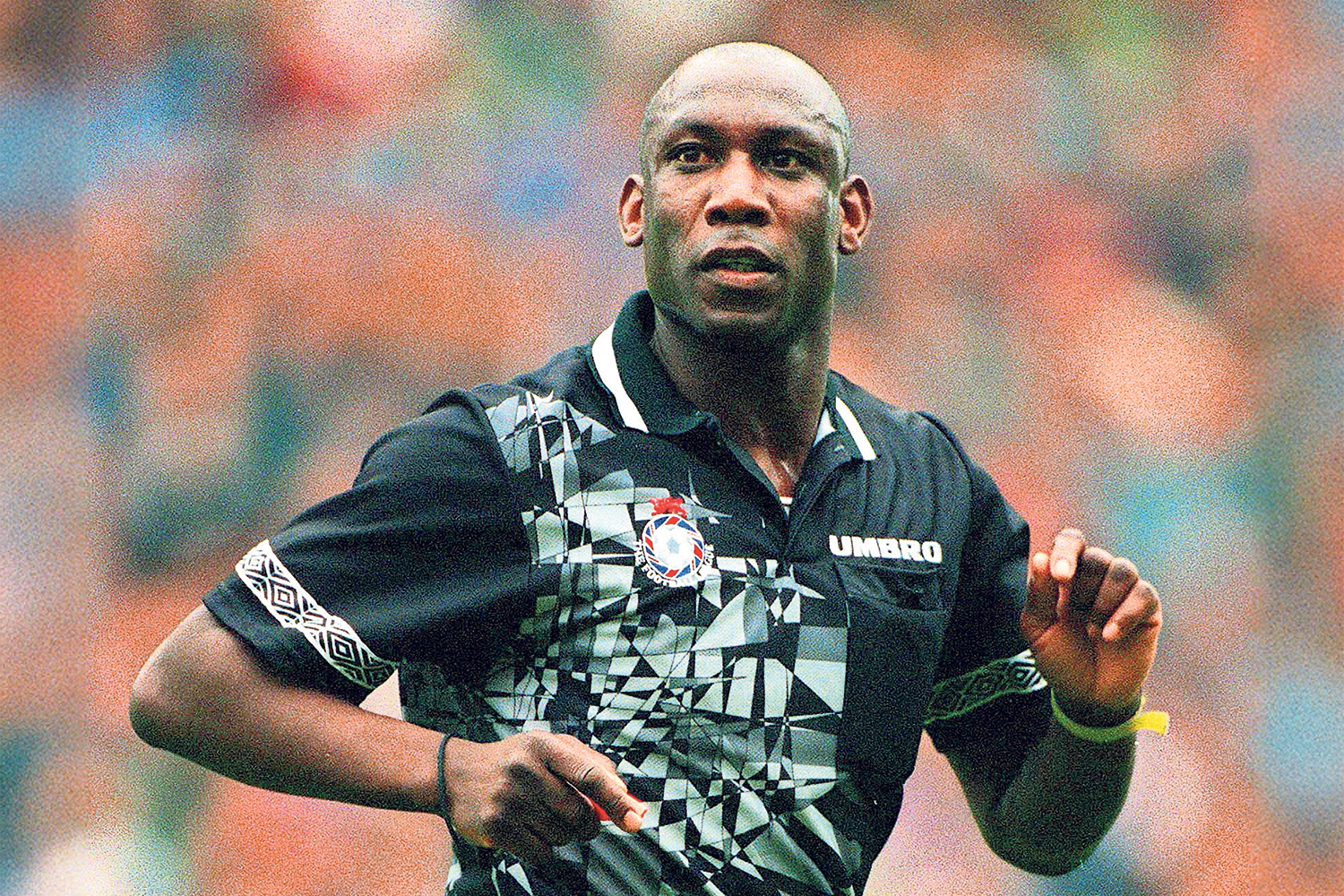A week after the death of the most prominent Black referee in English football, Uriah Rennie, campaigners say changes are coming too slowly to the elite game.
The chairman and co-founder of the Black, Asian and mixed heritage referees support group Bamref Joel Mannix said plans for levelling the playing field need to accelerate.
“Uriah’s legacy formed Bamref. In 2009 I wanted to be like Uriah Rennie. It is so sad he’s getting his flowers when he has gone. What is his legacy? Is he going to be just known as being one of the only ones? Or is there going to be that flow where other referees come through?”
Bamref is an organisation set up to work with football authorities to ensure higher representation for Black, Asian and mixed heritage referees progress through the game.
Tributes have flowed in this week for Rennie, who died last Sunday. He became the Premier League’s first black referee in the 1997-98 season and officiated more than 175 matches in the top flight. In December 2023, Sam Allison became only the second Black referee to take charge of a Premier League game when he officiated Luton’s 3-2 win at Sheffield United. In March 2024, Sunny Singh Gill became the first British South Asian to referee in the Premier League.
Since then Allison has been a fourth official on numerous occasions but has refereed just four Premier League games.
‘It’s like being let in the front door, just to find another door to get through’
‘It’s like being let in the front door, just to find another door to get through’
Bamref founder Joel Mannix
Mannix acknowledged work had been done to address historic flaws in referee selection at all levels, but said there was still a way to go to see change at the top level.
“It’s like going into someone’s house, you knock at the door, and they let you in,” he said. “But there’s still another door for you to get through before you’re in that house.”
Efforts to fast-track talented and diverse officials have picked up in recent years.
In October 2023, the Core X programme was set up by PGMOL, designed to elevate match officials from historically under-represented ethnic communities operating at the semi-professional level into the professional game, in collaboration with the Football Association and supported by Bamref.
Newsletters
Choose the newsletters you want to receive
View more
For information about how The Observer protects your data, read our Privacy Policy
Officials invovled in the programme made up 80% of all Black, Asian and mixed heritage promotions to the professional game, with five making their debuts in 2024-25.
Most referees are classified on an ascending scale from level seven to level one, with annual opportunities for promotion. The elite referees in the Premier League and the Championship are in two higher groups: select group one and select group two. The assessments for appointment to the next level are based on reports by FA observers and input from football clubs.
Level one and the two select groups are overseen by PGMOL, a company partly funded by the FA, EFL and Premier League; levels two to four are overseen by the FA; and levels five and below are overseen by county FAs. This structure is designed to support the progression of referees from the entry level right up to the elite men’s game.
Mannix and fellow co-founder Aji Ajibola started Bamref in 2019 after both experienced discrimination at the hands of observers at the FA during their progression and wanted to safeguard the path of the next generation of referees. There have been instances where previous refereeing professionals have shown themselves to be resistant to change.
Last year, former Premier League referee and freelance observer Rodger Gifford was banned for five months over racist comments about a Black assistant.
An investigation by The Observer in 2021 found allegations of racism among observers who mark referees for promotion.
“Certain referees have refereed for 15 years. Not everyone’s going to get up there. Of course, they’re not,” Mannix said. “But come on, it’s ridiculous, some observers did fast-track whoever they like, whenever they like, however they like.”
Two officials – Farai Hallam and Ruebyn Ricardo – received a number of appointments to referee EFL Championship fixtures and operate as a fourth official on Premier League games in 2024-2025.
The FA’s refereeing strategy released in 2023 said that the year-on-year target should grow from the 3% baseline of Black and Asian referees operating in just the professional men’s game to 5% last year and 7% this year.
The Observer understands that this season, 7% of the officials are of Black, Asian or mixed heritage – but this number is across both the men’s and women’s professional game.
But with a wider and more diverse pool of officials, including the likes of Allison, Akil Howson, Bhups Singh Gill, Paul Howard, Abbas Khan, Ade Soneye, Levi Gray, Lauren Impey, Aaron Ford, there is at least a chance that the FA’s target will be met.
Photograph by Richard Sellers/Getty Images
